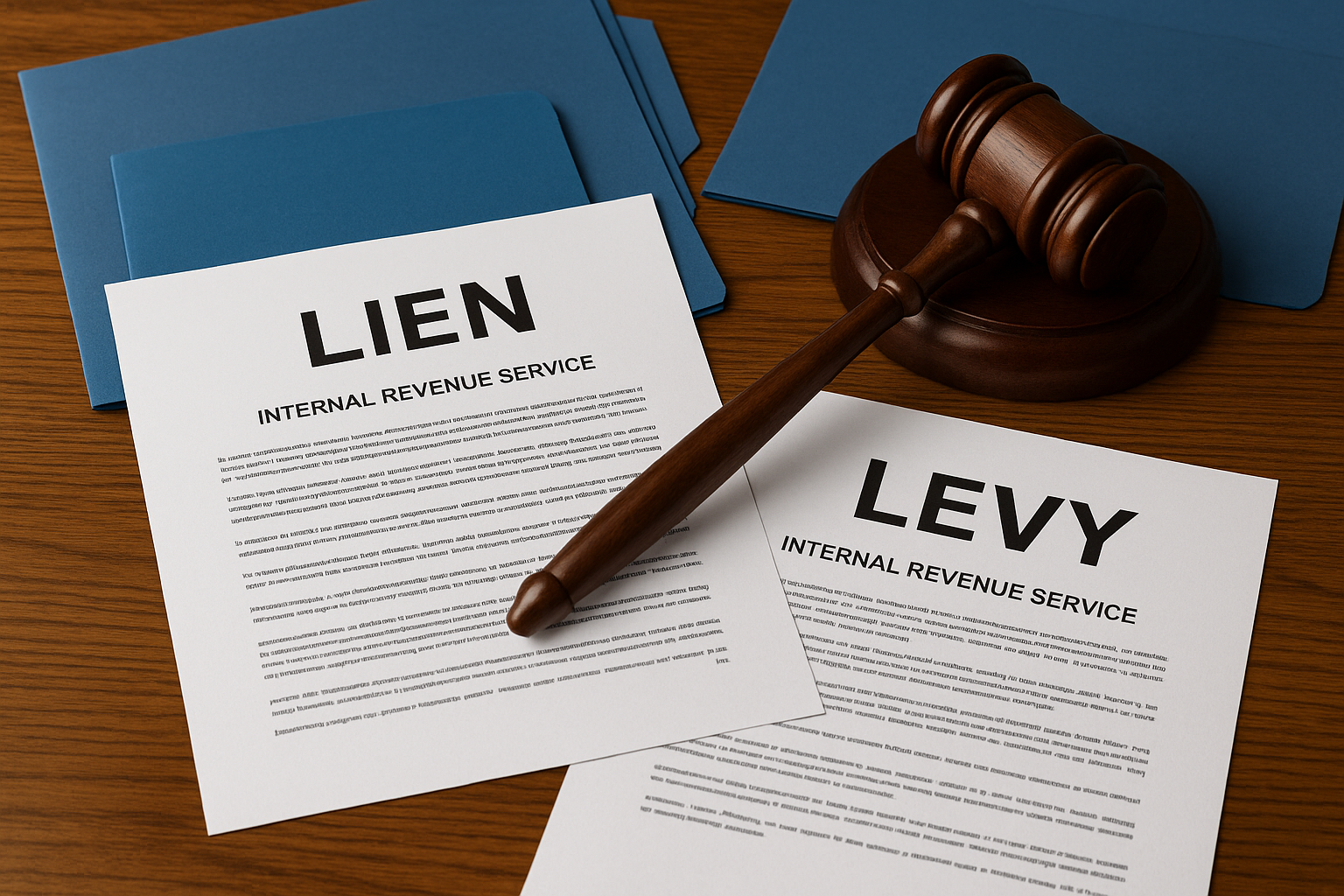
Lien vs levy: two IRS tools with very different consequences.
Lien vs Levy: 17 Essential Differences You Must Know
If you owe back taxes, you will eventually hear the term lien vs levy. These are not the same thing. A lien is the IRS’s claim against your property for unpaid taxes, while a levy is the legal seizure of that property. Knowing exactly what lien vs levy means will help you take action before the IRS takes your income or assets.
What Does Lien vs Levy Mean?
In IRS collections, the lien vs levy difference is straightforward: a lien secures the government’s interest in your property, and a levy is the enforcement that takes the property. Think of lien vs levy as “claim vs seizure.”
IRS Tax Lien in the Lien vs Levy Process
- Filed as a Notice of Federal Tax Lien, creating a public record of your debt.
- Attaches to real estate, personal property, and future assets.
- Restricts your ability to sell or refinance property.
See: IRS: Understanding a Federal Tax Lien.
IRS Tax Levy in the Lien vs Levy Process
- Allows the IRS to take wages, bank account funds, or tangible property.
- Occurs after a Final Notice of Intent to Levy is issued.
- Results in immediate loss of funds or property.
See: IRS: Levy.
Lien vs Levy: Key Differences Table
| Aspect | Lien | Levy |
|---|---|---|
| Nature | Claim on property | Seizure of property |
| Timing | Before levy | After lien or notice stage |
| Impact | Restricts sale/refinance | Removes assets or funds |
| Public Record | Yes | No (unless property sale) |
| Credit Impact | Can harm credit | Not reported to credit bureaus but causes financial loss |
| Removal | Release or withdrawal | Release or rare return of seized funds |
How the IRS Moves from Lien vs Levy
- Assess the tax debt and send a Notice and Demand for Payment.
- File a Notice of Federal Tax Lien if the debt is unpaid.
- Issue a Final Notice of Intent to Levy and Your Right to a Hearing.
- Carry out the levy if no resolution is reached.
Learn more: Collection Due Process FAQs.
How to Stop Lien vs Levy Actions
- Pay in full: Clears the debt and removes both lien and levy risk.
- Installment Agreement: Stops levy actions and may lead to lien withdrawal.
- Offer in Compromise: Settle for less than you owe to end lien vs levy escalation.
- Timely CDP Hearing: Pauses levy while your appeal is reviewed.
Myths About Lien vs Levy
- Myth: A lien means the IRS is already taking property.
Fact: The lien is a claim; the levy is the taking. - Myth: Once levied, you can’t recover property.
Fact: In some cases, levy proceeds can be returned. - Myth: You can ignore a lien without consequences.
Fact: Ignoring a lien often leads to levy.
FAQs About Lien vs Levy
Which comes first in lien vs levy?
The lien typically comes first, serving as a warning, while the levy is the action stage.
Does lien vs levy affect credit?
A lien can damage your credit and prevent refinancing; a levy directly impacts your cash or property.
Can lien vs levy actions happen without notice?
No—both require the IRS to send notices before action, but ignoring them allows the process to continue.
Related Resources on Lien vs Levy
Disclaimer
Disclaimer: The information provided in this blog post is for informational purposes only and should not be construed as legal, tax, or accounting advice. Tax situations are often complex and highly specific to the individual or business. You should contact a qualified tax expert directly to discuss your particular circumstances. Nothing herein is intended to, nor does it, create an attorney-client or advisor-client relationship. For individual guidance, please contact us directly.


